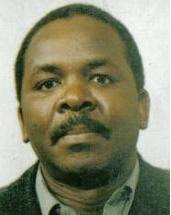I am Joseph R. Alila, the author of Sunset on Polygamy (ISBN 1424166845).Sunset on Polygamy is the first of six novels and two collections of poems that I have written. This novel speaks to the sociological, spiritual as well anthropological underpinnings of governance, courtship, marriage, polygamy, remarriage, conflicts, death and disease among the Luo of East Africa. I have also addressed how these aspects of life affect the understanding and management of the New Disease epidemic (read AIDS epidemic) among my people (the Luo).
As a social critic, I believe that my role is to blow the horn, to warn, to praise, to mourn, and to ask questions whenever there is an emergent cultural problem. In this role, I have tried to be an innocent presenter (and sometimes an active presenter) of facts as I see them, and calling human folly what it is.It may come as a surprise to some of my readers that my female heroines (Felicia the Nyadendi, Nyapora, Megan and Gina) tend to influence the destiny of their homes and husbands and a whole people. But this is a natural consequence of the fact that, among the Luo, marriage is a spiritual institution, and the woman is at the center of worship within the home. When polygamy is factored into the marriage equation, marriage becomes one complex religious institution with its own dos and don’ts. Now, when the ethical references and goalposts are frayed and weakened by social decay, marriage in general (and polygamy in particular) becomes a complex deathtrap in the face of emergent disease epidemics such as AIDS. When the symptoms of AIDS are confused for that of chira (deadly curse), the tragedy of our human folly becomes immeasurable.
SUNSET ON POLYGAMY
By Joseph R. Alila
www.publishamerica.com



